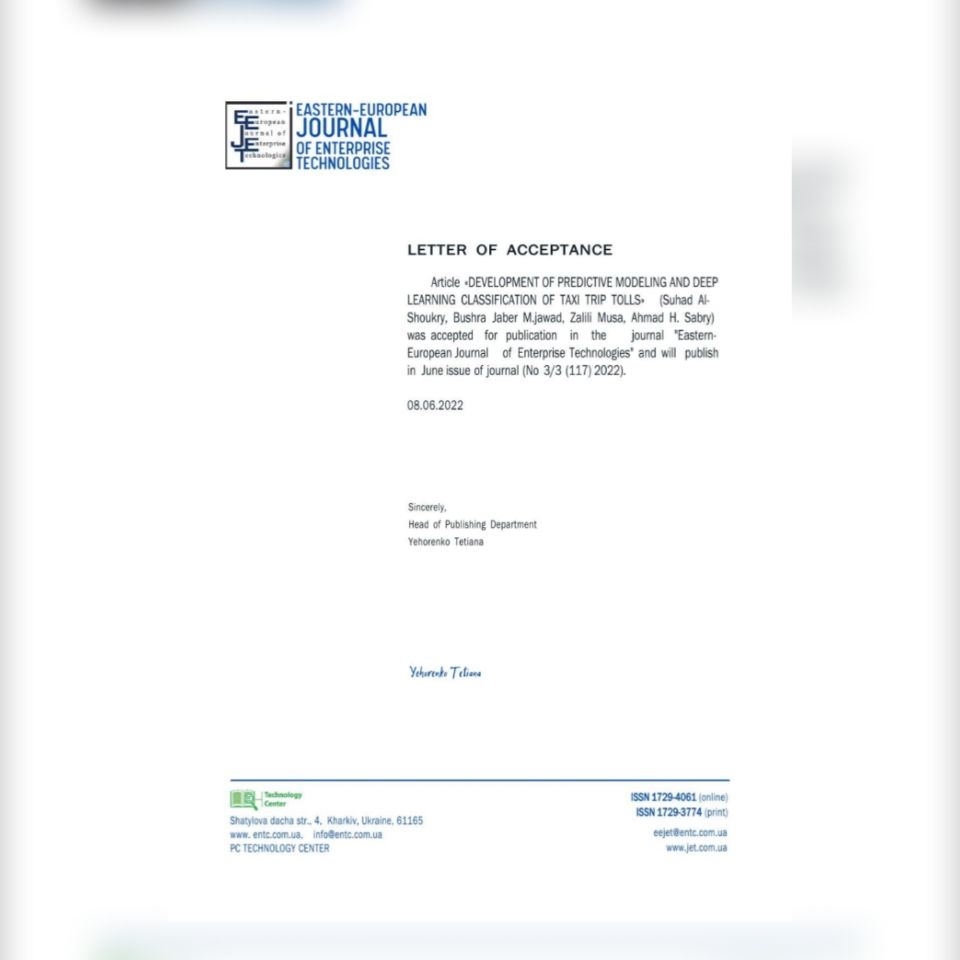A lecturer from Collage of Administration and Economics /Kerbala University has published a scientific study Development of predictive modeling and deep learning classification of taxi trip tolls
in Journal of Humanities and Islamic Strategic Studies. Iran
Asst. lecturer Bushra Jaber M.Jawad
Asst. lecturer Suhad ِAbdulzahra Hachim
Zalili Musa
Abstract
Several studies discussed the predictive modeling of deep learning in different applications such as classifying tissue features from microstructural data, Crude Oil Prices, mechanical constitutive behavior of materials, microbiome data, and mineral prospectively. Commercial navigation includes a wealth of trip-related data, including distance, expected journey time, and tolls that may be encountered along the way. Using a classification algorithm, it is possible to extract drop-off and pickup locations from taxi trip data and estimate if the tour would incur tolls. In this work, let’s use the classification learner to create classification models, compare their performance, and export the findings for additional study. The workflow for the classification learner is the same as for the regression learner. The purpose is to make predictions based on fresh data in order to see how well the model performs with new data. To train the model, it’s critical to separate the data set. The combined training and validation data is next pre-processed, which involves tasks such as cleaning and developing new features skills. Once the data has been prepared, it’s time to begin the supervised machine learning process and test a number of ways to identify the best model, such as the type of model that should be used, the important features, and the best parameters of the model to find the best fit for the considered data. The results of analyzing different predictive multiclass classification models with taxi trip tolls show that it is possible to use a machine learning-based model when we like to avoid road tolls depending on historical data on taxi trip tolls. The outcome of this study can help to expect road tolls from the drop-off and pickup locations of a taxi data.































































